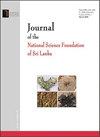Scientific literacy in the age of misinformation
IF 0.4
4区 综合性期刊
Q4 MULTIDISCIPLINARY SCIENCES
Journal of the National Science Foundation of Sri Lanka
Pub Date : 2024-07-09
DOI:10.4038/jnsfsr.v52i2.12276
引用次数: 0
Abstract
Many of the important issues that confront society today such as mitigating climate change, alternative energy sources, genetically modified organisms and the use of pesticides and weedicides in agriculture, require the general public to possess scientific literacy to understand and decide amongst different proposals presented by policy makers and politicians. However, it is clear that in today’s world, scientific literacy which is limited only to a knowledge of some basic theories and facts regarding the natural world does not enable society to take reasonable decisions on these issues. This is mainly due to the fact that the controls that existed in the flow of scientific information, such as boards of scientific and academic organizations, editors and knowledgeable science journalists are now being by-passed via social media and the internet. Various ideological and political campaigns are now behind much of what passes as “science”. Fidelity to the truth is no longer a concern. The anti-vaccine drive in many technologically advanced countries during the Covid-19 pandemic, and the banning of chemical fertilizers in Sri Lanka in 2021 stand as illustrative examples. An unfortunate by-product of the digital revolution has been the current age of misinformation. While the implications of these developments for democracy and freedom of expression are being debated, it is evident that being a scientifically literate person implies the ability to evaluate the trustworthiness of science-related information that is so readily available on the internet. The different fields of science are so highly specialized today, that it may not be possible even for a scientist to evaluate the evidence for a particular claim outside one’s own specialty with certainty. Thus, the starting point for both scientists and the general public has to be to assess the trustworthiness of their sources of information. This may not be as straightforward as it seems, but the kinds of questions that should be looked into are conflict of interest, ideological bias, credentials for expertise and level of agreement with other experts in the field. Being able to evaluate ‘who’ is making a claim becomes as important as considering ‘what’ is being claimed.错误信息时代的科学素养
当今社会面临的许多重要问题,如减缓气候变化、替代能源、转基因生物、农业中杀虫剂和除草剂的使用等,都要求公众具备科学素养,以理解决策者和政治家提出的不同建议并做出决定。然而,在当今世界,仅仅了解自然界的一些基本理论和事实的科学素养显然无法使社会就这些问题做出合理的决定。这主要是由于科学信息流通中存在的控制,如科学和学术组织的委员会、编辑和知识渊博的科学记者,现在都被社交媒体和互联网所绕过。现在,各种意识形态和政治运动是许多所谓 "科学 "的幕后推手。忠于真相不再是人们关心的问题。许多技术先进的国家在科维德-19 大流行期间开展的反疫苗运动,以及斯里兰卡在 2021 年禁止使用化肥,都是很好的例证。数字革命的一个不幸副产品就是当前的错误信息时代。虽然这些发展对民主和言论自由的影响还在争论之中,但作为一个有科学素养的人,显然有能力评估互联网上随时可得的科学相关信息的可信度。如今,不同的科学领域都高度专业化,即使是科学家也不可能对自己专业之外的某一说法的证据做出肯定的评价。因此,科学家和普通公众的出发点都必须是评估信息来源的可信度。这可能并不像看起来那么简单,但应该研究的问题包括利益冲突、意识形态偏见、专业资质以及与该领域其他专家的一致程度。评估 "谁 "在发表声明与考虑 "什么 "在发表声明同样重要。
本文章由计算机程序翻译,如有差异,请以英文原文为准。
求助全文
约1分钟内获得全文
求助全文
来源期刊

Journal of the National Science Foundation of Sri Lanka
MULTIDISCIPLINARY SCIENCES-
CiteScore
0.90
自引率
0.00%
发文量
57
审稿时长
>12 weeks
期刊介绍:
The Journal of National Science Foundation of Sri Lanka (JNSF) publishes the results of research in Science and Technology. The journal is released four times a year, in March, June, September and December. This journal contains Research Articles, Reviews, Research Communications and Correspondences.
Manuscripts submitted to the journal are accepted on the understanding that they will be reviewed prior to acceptance and that they have not been submitted for publication elsewhere.
 求助内容:
求助内容: 应助结果提醒方式:
应助结果提醒方式:


